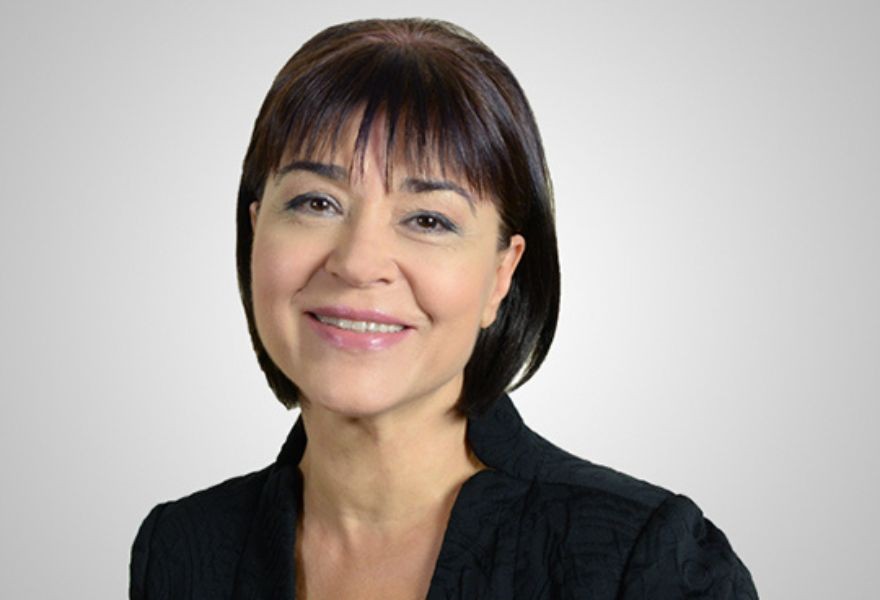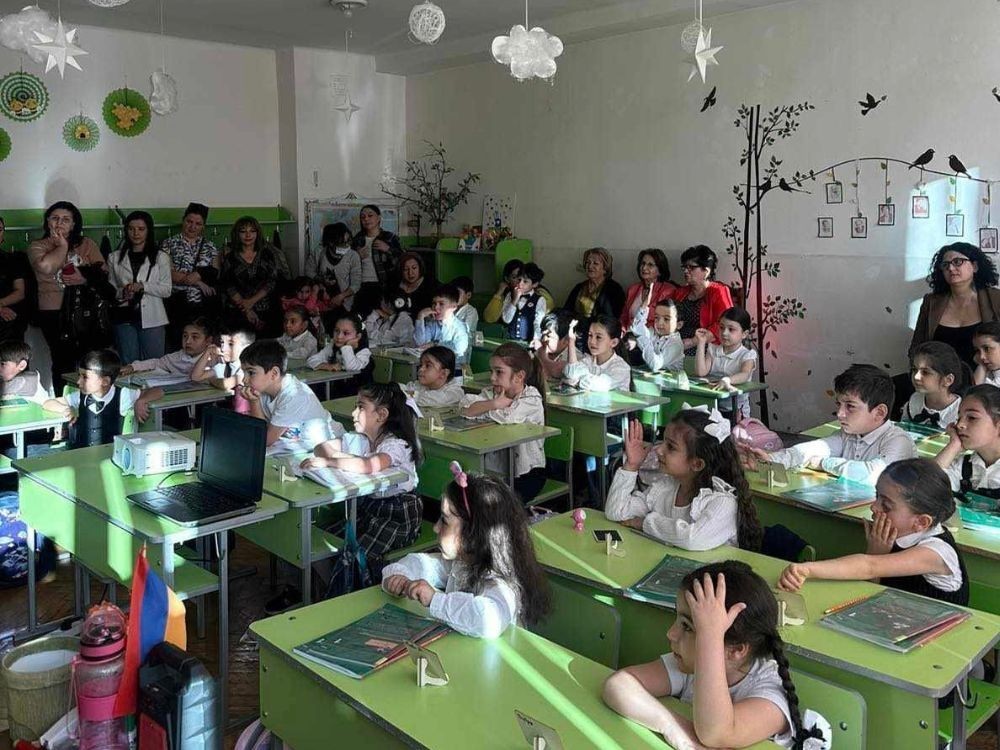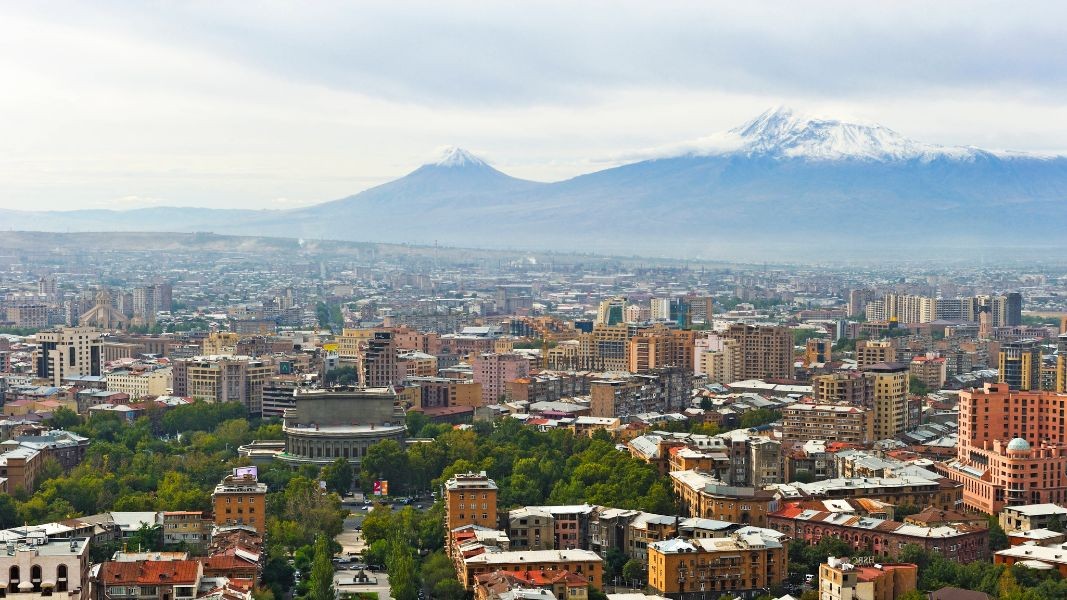"Every day, we should think about peace and the messages that politicians send,” journalist Tsvetana Paskaleva, who has been living in Armenia for 30 years, says. "The situation around us and in neighbouring countries is unstable and war is something terrible that can take the lives of your loved ones in a moment," says the Bulgarian, who has become the most recognizable face of Bulgaria in the Asian country. She has seen with her own eyes the wounds of the war and today has every reason to wish for peace. At the beginning of her journalistic career, Tsvetana Paskaleva covered the Nagorno-Karabakh conflict, as her camera capturing looted and destroyed Armenian villages.
In the early 1990s, Tsvetana was a graduate student in Moscow, studying theater directing. At that time, she learned that the former Soviet army and Azerbaijani special forces were forcibly deporting Armenian villages in Nagorno-Karabakh. Determined to cover the events, the young Bulgarian managed to get to the hot spot. Without knowing that the war would last so long, she would remain covering it until the very end in 1994. The Bulgarian is the author of a series of 7 documentaries about the devastating events in Karabakh. They have been translated into 6 languages and, in addition to Armenia, have been shown across Europe and the USA.

For a period of time, Tsvetana Paskaleva lived in the underground part of a military hospital and saw with her own eyes the bloody face of war with the victims and wounded. Because of her courageous reports and impressive films, the Bulgarian woman received death sentences three times during her stay there. After the war, Tsvetana Paskaleva was awarded a medal for bravery, and became a "Hero of Armenia". She is proud to be the first foreigner to receive citizenship in Armenia.
Despite the enormous gratitude in Armenia, Tsvetana never broke away from her Bulgarian roots. "It is extremely exciting and responsible task for me to represent Bulgaria. I have never been embarrassed to say that I am Bulgarian," the journalist says and adds:
"I was raised by my family and my teachers. We were raised in a way so that we are responsible for the one who is next to us and sometimes you have to sacrifice something of yourself if you want to protect another person. I don't want to use strong words, but it so happened that I sacrificed to a large extent my youth, my female happiness, my personal life, as well as my professional career. This is because while covering the war in 1991-1994, I worked for many Western television companies and I had the opportunity to choose between MBC or SBS in 1994 and go to work there, but I made the most unpopular decision and chose to stay in Armenia. So, since 1996 to this day I have been working for the Armenian National Television.”

There are very few Bulgarians in Armenia and the longest-residing Bulgarian is Tsvetana Paskaleva. She is the doyen of the Bulgarian community. She recalls how in 1993 there was not even a Bulgarian embassy in the capital Yerevan, there was only a Sunday school named after poet Peyo Yavorov. "For the people there I am something of a hero and this imposes a special framework on you and you have to correspond to this created image," Tsvetana Paskaleva say and adds:
"Because you are Bulgarian and you carry the Bulgarian spirit and you should know that you represent Bulgaria on this land. Back then, the only connection for these people with Bulgaria was me. At all events, they always invite me and I feel responsible for being something like a sign of Bulgaria's quality in this not-so-distant country - both for historical reasons, in mentality, and in soul.”

Tsvetana Paskaleva says that she is constantly in contact with her compatriots and is always available to provide help to the Bulgarian embassy in Yerevan. She only manages to return to Bulgaria in the summer and no matter how tempting offers there are for a vacation somewhere else, she always chooses the Bulgarian Black Sea coast. She admits that these ten days of vacation in our country are true bliss and nostalgia always draws her to her homeland.
Author: Gergana Mancheva
Publication in English: Al. Markov
Photos: Reuters, like-cool.online, 1tv.am, Bulgarian school “Peyo Yavorov” (Yerevan)
Despite being in Bulgaria’s poorest region, the North-West, Vratsa Province ranks among the top three in the country for economic development. According to 2023 data from the National Statistical Institute (NSI), it shares third place with Varna on the..
Bulgarian artists will take part in the festive Christmas concert in Stockholm , organised with the European Commission's representation and embassies , the Bulgarian embassy in the Swedish capital announced on Facebook. The event is scheduled for 8..
The project “The Charisma of Bulgarians” is, in essence, a bridge between different worlds . With it, Dimitrinka Yordanova Komanduci - psychologist, psychotherapist, vocal coach, and author of “Your Voice Can Change Your Life” - aims to create a..

+359 2 9336 661
